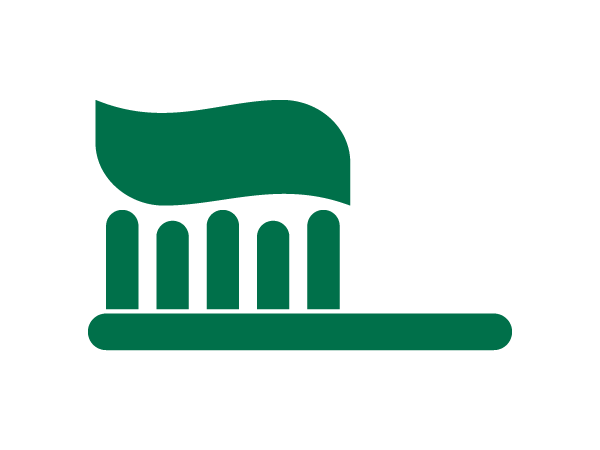Program Overview
Since 1975, Delta College has been known to offer the best dental hygiene program
in the region. It's still true today, as 100% of graduates pass their licensure exams
and find employment. As a registered dental hygienist, you'll provide dental hygiene
services and teach patients how to prevent oral diseases.
Treatment and services provided by a registered dental hygienist are: scaling and root debridement; application of topical fluoride for the prevention of tooth decay; sealants, impressions, prepare diagnostic models; expose dental radiographs; provide instructions for patient self-care and nutritional counseling; and perform laboratory procedures. Duties of registered dental hygienists vary from state to state. In Michigan, registered dental hygienists also provide local anesthesia and nitrous oxide to patients 18 years of age and older.
The dental hygiene program is a highly competent professional program adhering to comprehensive outcomes, competencies and objectives. Delta's dental hygiene faculty members are committed to creating an educational environment that facilitates your growth in knowledge and skills, while developing your full potential.
The program is rigorous. Prior to entering the dental hygiene program, you will complete 30-34 credits of prerequisite courses. The dental hygiene program is five semesters and four of the five semester are 18 credit hours. The student will attend labs, clinics and classes approximately 35 hours per week. The student will need to commit to many hours of study per week as well as completing tests, assignments, projects and papers outside of class.
Be successful. Develop these skills.
- Dental infection control
- Periodontics
- Dental materials
- Dental hygiene
- Anatomy and physiology
- Microbiology
- Medical terminology
- Patient care and management
- Compassion
- Detail oriented
- Dexterity
- Interpersonal communication
- Organization
The Dental Hygiene Program is accredited by the Commission on Dental Accreditation (CODA).
Commission on Dental Accreditation
211 East Chicago Avenue
Chicago, Illinois 60611
800-621-8099 or 312-440-4653
Each state has its own licensing. Other states may accept the regional board exam that Michigan requires, but students are required to become licensed in each state separately and may require further testing (such as a jurisprudence exam or more). Some states require a minimum number of years of clinical experience as a licensed RDH in another state, or you may be asked to retake exams depending how long it has been since the licensing exams were taken. There is no guarantee of licensing in another state. You may apply and the state's licensing board will look at your credentials/education and decide. Please contact the program coordinator for more information.
Getting your degree in a health field is unique compared to other Delta programs. You must first take your prerequisite core courses, and then you'll apply for validation.
What's validation?
The Registrar's Office validates your prerequisite courses to confirm you are eligible
to begin the clinical portion of your program.
Success tips
- Declare the Dental Hygiene program.
- Meet with your advisor regularly. Stay on track with what you need to do to apply.
- Apply for validation with the Registrar's Office once you've started your final semester of prerequisite courses.
- Stay connected for important updates from Delta.
Dental hygiene program goal
The program will provide career education to prepare entry-level dental hygienists.
Dental hygiene program competencies
- Assess, plan, implement and evaluate dental hygiene services and treatment to individuals and the community.
- Assess, analyze and incorporate evidence-based decision making in the management of patients/clients for continuous lifelong learning.
- Manage infection and hazard control.
- Manage medical emergencies.
- Participate in professional events in the community and model professional behaviors including ethical, legal, interpersonal skills and professional appearance.
- Solve problems individually and in a team environment.
Infection control
As a student dental hygienist, during patient treatment, there is a risk of exposure
to blood, saliva, aerosols and punctures. Therefore, during the program, the student
will learn about various diseases and how to prevent transmission of disease both
to patients and yourself.
Board examination pass rates
- 2020 Graduates 100%
- 2021 Graduates 100%
- 2022 Graduates 100%
- 2023 Graduates 100%
- 2024 Graduates 100%
Licensure rates
- 2020 Graduates 100%
- 2021 Graduates 100%
- 2022 Graduates 100%
- 2023 Graduates 100%
- 2024 Graduates 100%
Employment rates
Full-time or Part-time employment six months after licensure.
- 2020 Graduates 100%
- 2021 Graduates 100%
- 2022 Graduates 100%
- 2023 Graduates 100%
- 2024 Graduates 100%
Source: Results from Board examiners, personal contact.
Related Programs
Dental Hygiene – Dual Associate with General Management
In addition to the Dental Hygiene associate degree, Delta also offers a dual degree with General Management. With this program, you have the opportunity to earn a second associate degree in General Management at the same time as your dental hygiene associate's degree. It's a great way to get that business background and increase earning potential.
Explore all programs
Delta College offers over 140 degree, certificate and training options. Whatever your path, when you leave here, you’ll be ready.
Transfer opportunities
It's a smart choice to get your associate's and then transfer on for a bachelor's degree. And in the process, save thousands (and thousands) of dollars.
Delta College has pre-approved transfer agreements with:
- University of Detroit Mercy - Dental Hygiene
- Ferris State University - Allied Health Sciences
Interested? Make an appointment with academic advising to discuss your interests. Courses transfer differently based on the university you plan to attend. An advisor can help you determine the exact courses you need to get the education you’re looking for.
The transferability of courses between colleges/universities depends on the institution into which you transfer. Visit Transfer Programs and Procedures to see the full procedure.

100% of dental hygiene students find jobs when they graduate.

100% of dental hygiene students pass their national and state licensure exams. Go Delta!